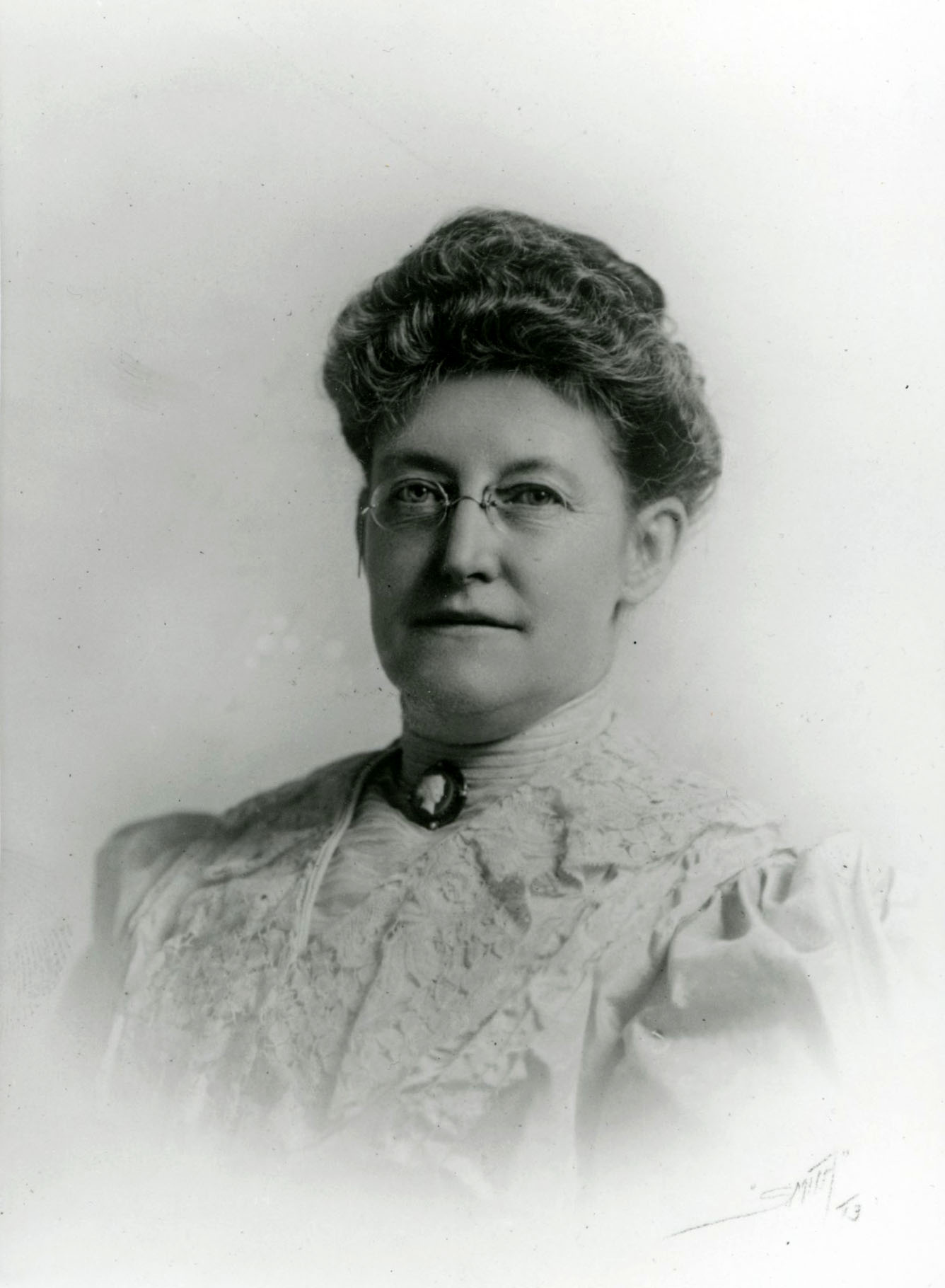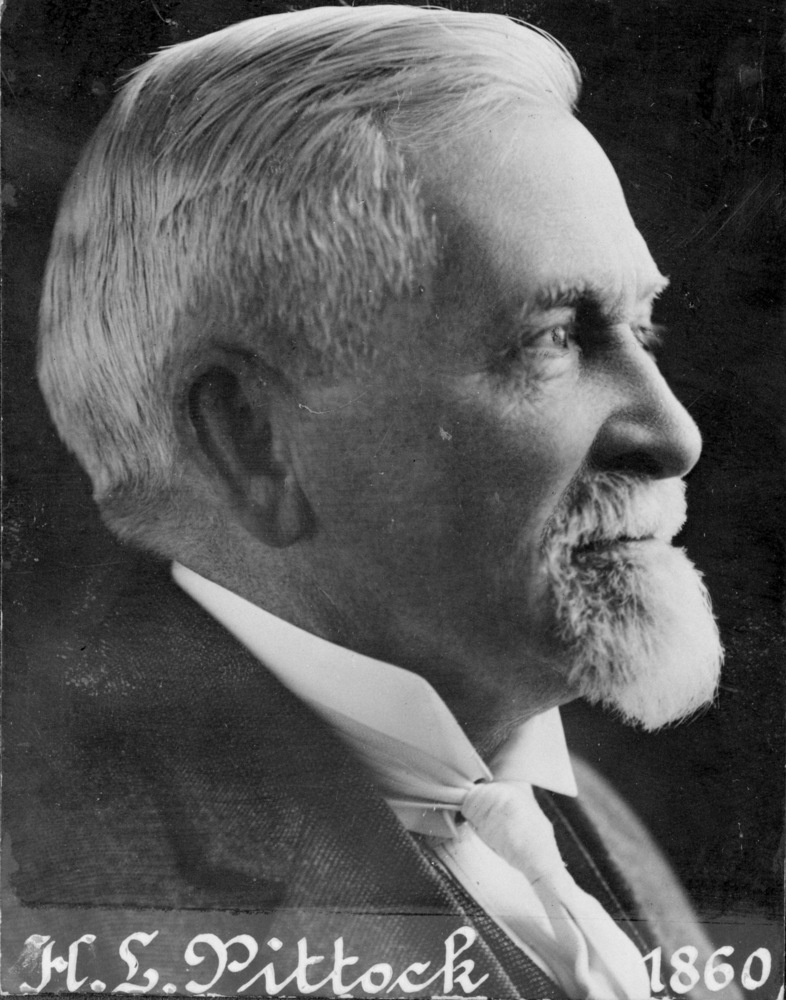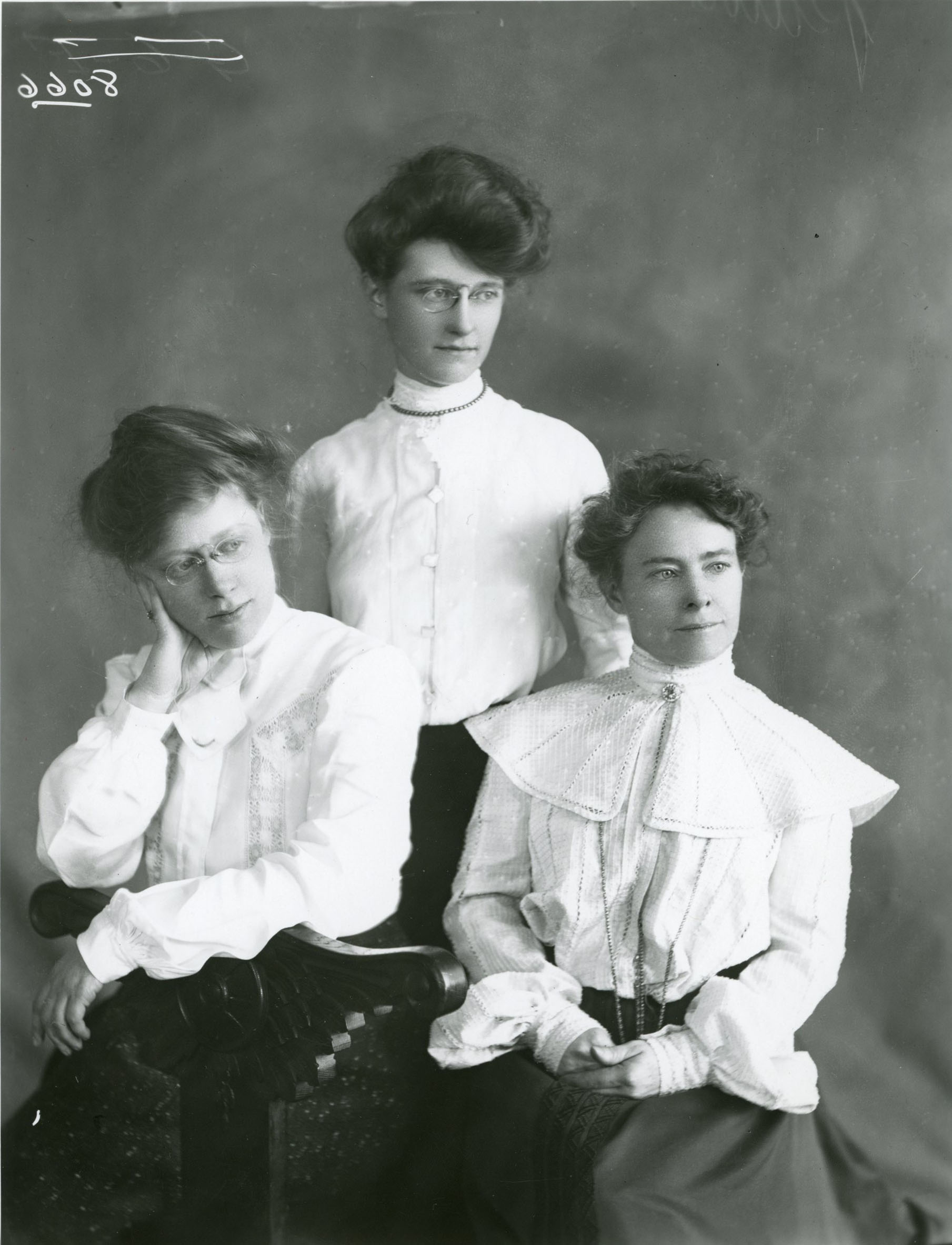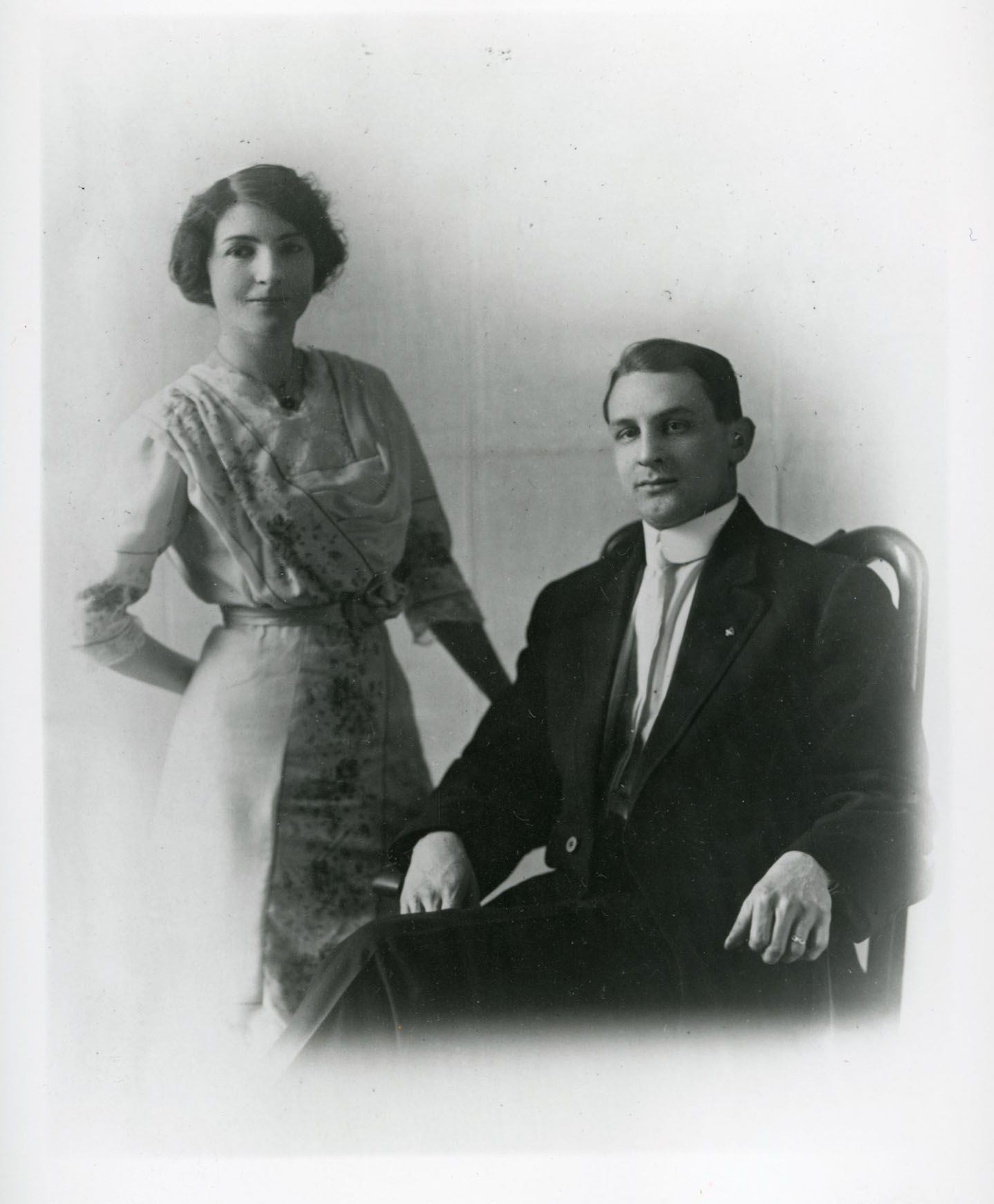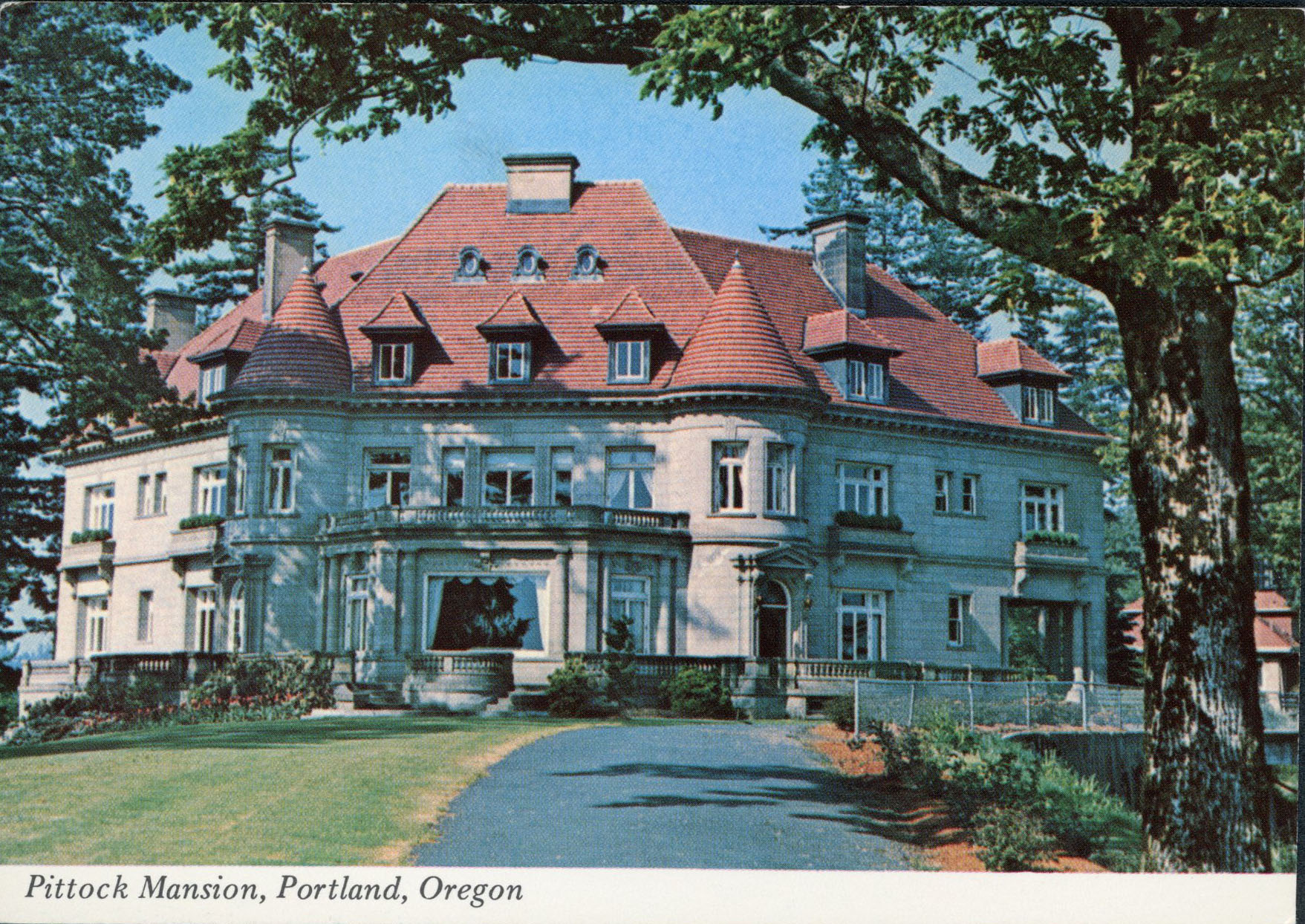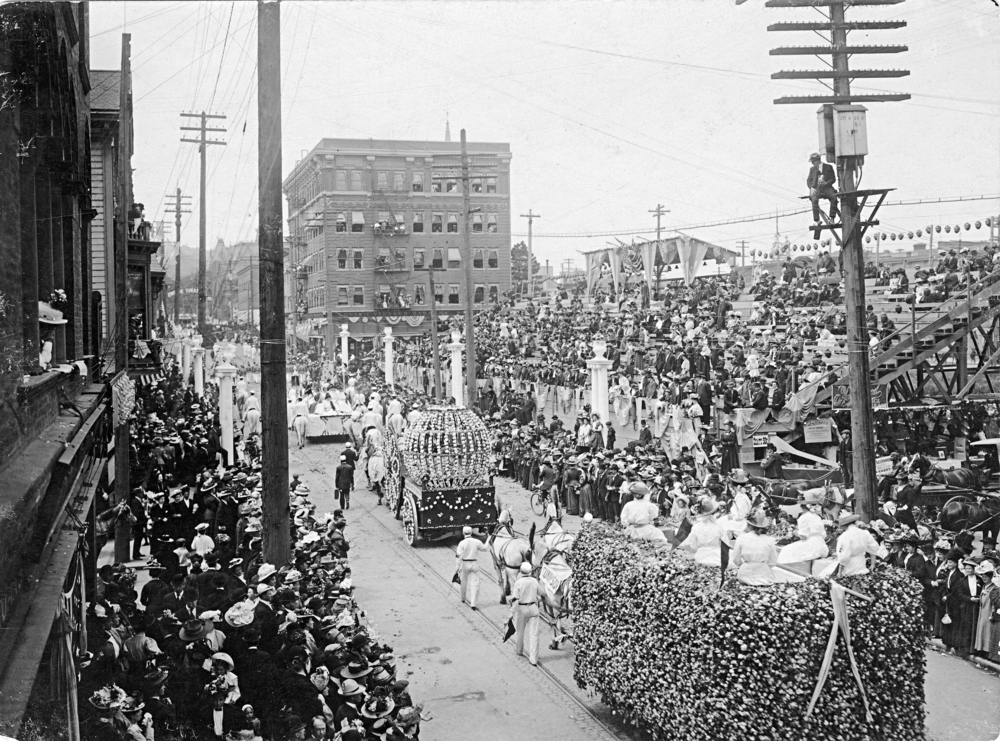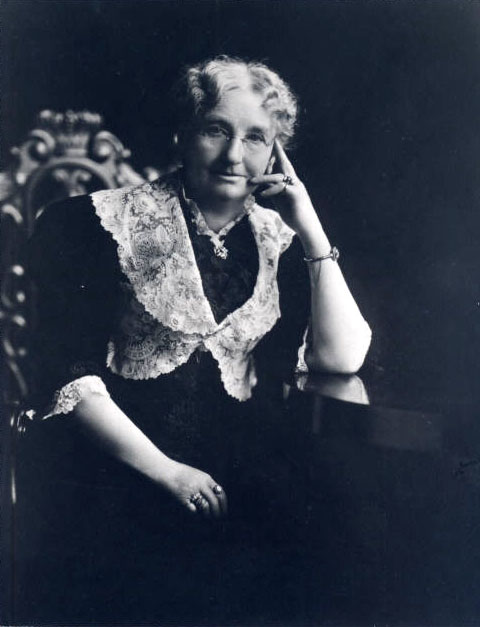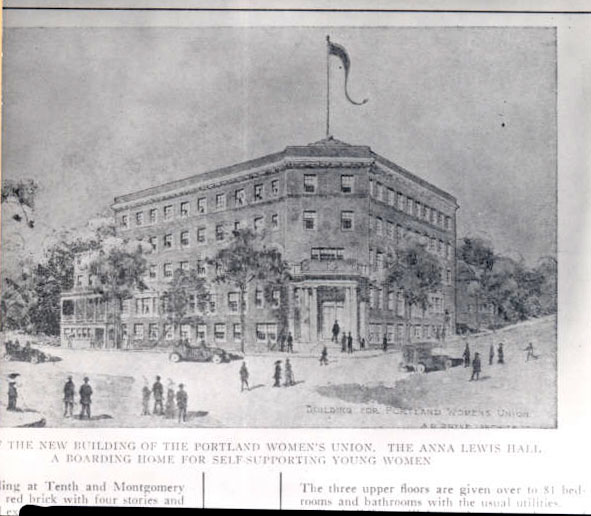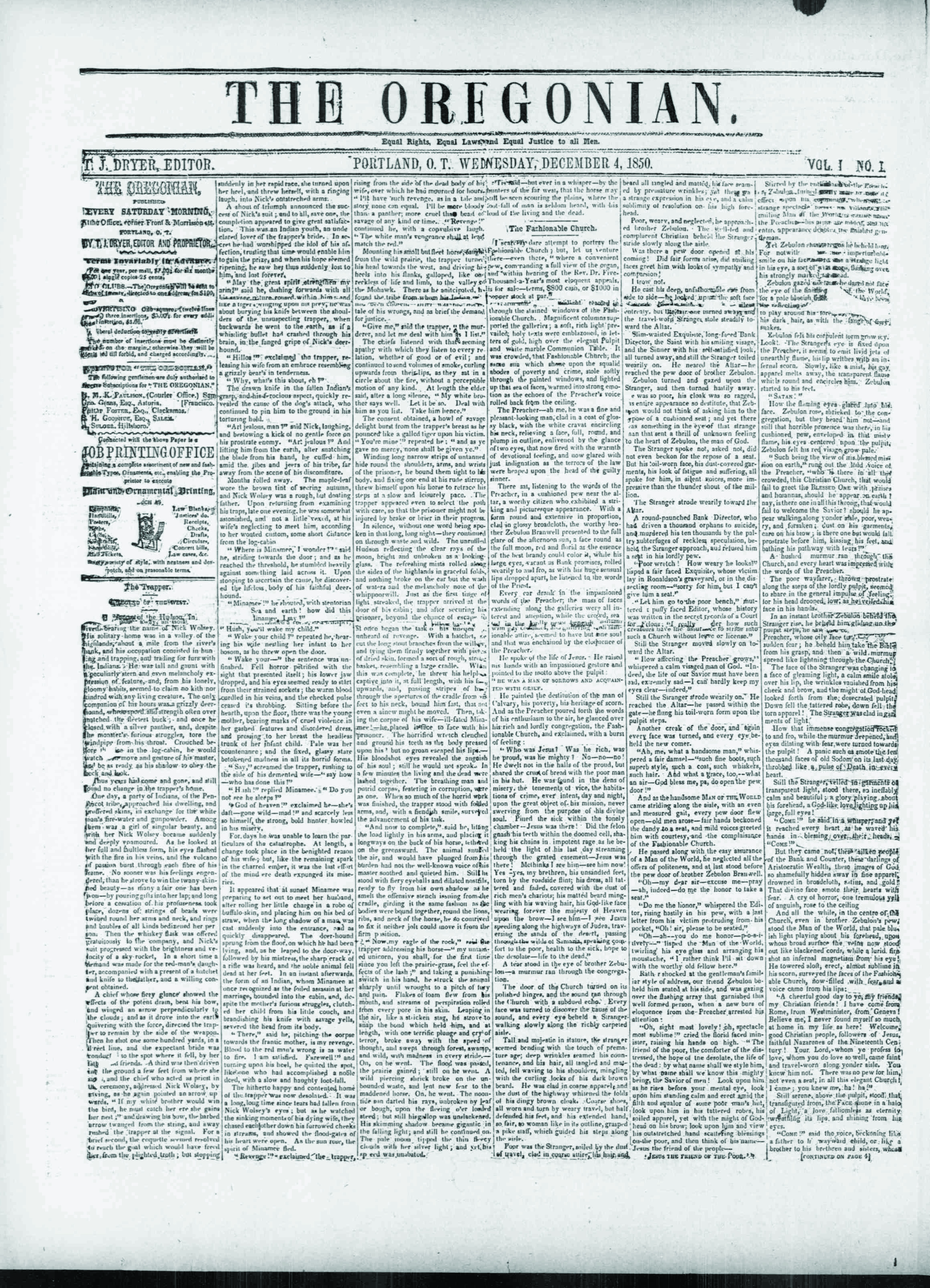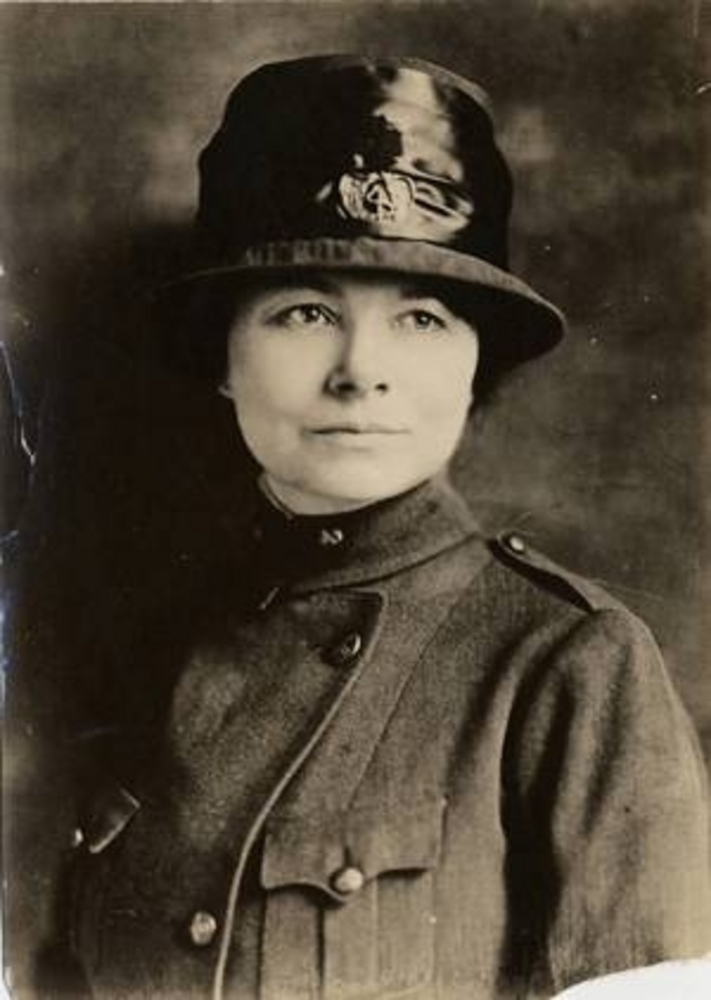Georgiana Burton Pittock was the founder of the Portland Rose Society and a founder of Portland’s Rose Festival. As a philanthropist, reformer, and society leader with her husband Henry Lewis Pittock, owner and publisher of the Oregonian, she inspired Portland to become the cultural and business center of Oregon. She was a woman of privilege who aided the poor and disadvantaged and used her business acumen and organizational talents for the betterment of women and children. Her philanthropy and cultural endeavors contributed to Portland's civility and its identification as the City of Roses.
Born on November 14, 1845, in Clark County, Missouri, to Elwood Morgan Burton and Rhoda Ann Hall Burton, Georgiana Burton lived in Keokuk, Iowa, before traveling with her parents and two sisters on the Oregon Trail in 1854, from Missouri to the Oregon Territory. On one occasion when she rode her pony ahead of the group, nine-year-old Georgiana was captured by a group of Sioux, who later returned her unharmed. As a capable and independent child and an expert rider, they reportedly had wanted to keep her with them.
Elwood Burton settled his family in Milwaukie, Oregon Territory, where he ran a flour mill. In 1855, he moved the family to Portland, became an architect and contractor, and built a number of the city’s early structures. Georgiana was educated at the Portland Academy and Female Seminary, a school on Seventh (Broadway) and Jefferson Streets administered by the Methodist Church. Georgiana was inspired by the Social Gospel reform movement, which encouraged a willingness to aid the less fortunate. She met Henry Lewis Pittock as she drove her horse and buggy past the Oregonian building on First and Morrison in downtown Portland. They were married in June 1860. That November, Henry Pittock became the owner of the Oregonian. The couple would have nine children.
Using the Oregonian as their financial base, the Pittocks invested in real estate, steamboats and railroads, banks, silver mining, sheep ranching, and pulp mills. Georgiana Pittock gave her leisure hours to fundraising for children’s and women’s charities and lent her energies to good works, usually in conjunction with the Unitarian Church. Heeding her Christian social consciousness in the early 1880s, she helped found and was president of the church’s Ladies Relief Society (also known as the Ladies’ Sewing Society). The Society sold baby clothes and helped established a Baby Home in 1888 that offered shelter, food, and parental care to needy children, especially orphans. The Baby Home, which cared for abandoned infants and children whose parents had died on the Oregon Trail, was renamed the Waverly Baby Home in 1944. Pittock helped establish the Fruit and Flower Day Care Center in 1906, the first day care center in Oregon for children of working mothers. The Center, which charged 10 to 25 cents per day, had grown out of charitable deliveries beginning in 1885 of flower and fruit baskets to shut-ins and hospital patients and supplied food to the poor farm. She donated a hundred dollars a year to support the Center.
Pittock also served on the advisory board of the Boys’ and Girls’ Aid Society, which ran a children's home for abused or orphaned children eligible for adoption. The Society was encouraged by Georgiana's friend Reverend Thomas Lamb Eliot as well as the Ladies Relief Society. Henry Pittock supported his wife’s charitable causes and ran ads in the Oregonian with profiles of children awaiting adoption. Georgiana Pittock also supported the Parry Center, known as the Children's Home, founded by Elizabeth Parry in 1867. She networked with reformers such as Anna Lewis Mann, with whom she collaborated in establishing the Old People's Home for married couples.
Pittock was a founding president and chairwoman of the finance committee of the Portland Women's Union, organized in 1887 to help women become self-supporting. She played a key role in establishing the Martha Washington Hotel in 1917 for single, working women. The hotel and boardinghouse offered sanctuary and moral guidance to young women and gave them a respectable place to live. She organized teas, bake sales, lectures, and bazaars to generate income for her philanthropic causes. She also controlled her own money and maintained a personal bank account.
Pittock was an avid gardener and grew many varieties of roses in her terraced flowerbeds. She organized and founded the Portland Rose Society in 1888 as a benefit for her Unitarian church, which established a competition, first held in her yard in 1889, for the year’s best homegrown roses. The Portland Rose Festival grew out of that event.
The Pittocks built Pittock Mansion on forty-six acres high on Imperial Heights in the West Hills overlooking Portland. The home was completed in 1914 after Georgiana had suffered a stroke, and an Otis elevator was installed to accommodate her. Other innovations included an intercom telephone system, central vacuum system, thermostats, overhead indirect lighting, a walk-in freezer, a Turkish smoking room, a music room, and a library. The Pittocks lived in the house with their two youngest married daughters and their families, the Hebards and Gantenbeins.
Georgiana Pittock died in Portland on June 12, 1918.
-
![]()
Georgiana Pittock.
Courtesy Oregon Hist. Soc. Research Lib., Orhi86582, photo file 870
-
![]()
Henry and Georgiana Pittock (center), wedding day, 1860. Robert Pittock and Sarah Abrahams attend..
Courtesy Oregon Hist. Soc. Research Lib., Orhi61522, OPS61522, photo file 870
-
![Henry Pittock.]()
Pittock, Henry, bb005784.
Henry Pittock. Oreg. Hist. Soc. Research Lib., bb005784
-
![]()
Sisters Louise "Lucy" Pittock Gantenbein (standing), Caroline Pittock Leadbetter (right), and who is likely Kate Pittock on the left.
Courtesy Oregon Hist. Soc. Research Lib., 36747, photo file 870
-
![]()
Members of the Pittock family, Henry and Georgiana in the front.
Courtesy Oregon Hist. Soc. Research Lib., Orhi86544, photo file 870
-
![]()
Bertha Leadbetter and Fred Pittock (son).
Courtesy Oregon Hist. Soc. Research Lib., 084387, Org Lot 869, folder 1
Related Entries
-
![Henry Lewis Pittock (1836-1919)]()
Henry Lewis Pittock (1836-1919)
Henry Lewis Pittock, longtime publisher of the Portland Oregonian, was …
-
![Pittock Mansion]()
Pittock Mansion
Pittock Mansion was built high above the city on Imperial Heights in th…
-
![Portland Rose Festival]()
Portland Rose Festival
In 1905, when Portland Mayor Harry Lane addressed a crowd at the Lewis …
-
![Portland Women's Union]()
Portland Women's Union
The Portland Women’s Union was the first all-women volunteer organizati…
-
![The Martha Washington (building)]()
The Martha Washington (building)
In 1911, the Portland Women’s Union, a group of volunteers who created …
-
![The Oregonian]()
The Oregonian
The Oregonian, the oldest newspaper in continuous production west of Sa…
-
Woman Suffrage in Oregon
The campaign to achieve voting rights (also called suffrage or the fran…
Related Historical Records
Map This on the Oregon History WayFinder
The Oregon History Wayfinder is an interactive map that identifies significant places, people, and events in Oregon history.
Further Reading
Lansing, Jewel. Portland: People, Politics and Power, 1851-2001. Corvallis: Oregon State University Press, 2003.
MacColl, E. Kimbark, and Harry H. Stein. Merchants, Money and Power: The Portland Establishment 1843-1913. Portland, Ore.: Georgian Press, 1988.
The Pittock Mansion Society. Simply Splendid, Portland's Pittock Mansion. Portland, Ore.: The Pittock Mansion Society, 2004.
Wilson, Janet L.. The Queen of Portland’s Roses: The Life of Georgiana Burton Pittock. Lake Oswego, Ore.: Panoply Press, 2nd edition, 2014.



